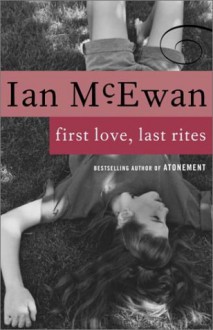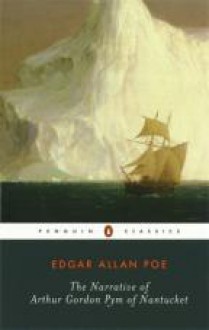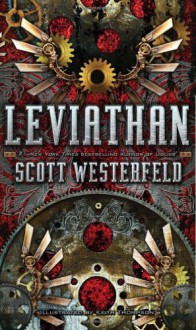
I write this review as a member of Rosie’s Book Review Team (authors, if you are looking for reviews, check here), and I freely chose to review an ARC copy of this novel.
JJ Marsh is an author I’ve read great reviews about and has been on my list for a while, so I took the chance when I saw an ARC for her next book had become available. I can’t compare it to the rest of her works, but based on this novel, which is a new genre for her, I wouldn’t hesitate recommending her books, and I look forward to catching up on some of her previous novels.
I think the description above provides plenty of hints as to the plot, and this is one of those novels where the way the story is told and the fine details are fundamental, so I’ll try to avoid over explaining things or giving too many hints (I want to avoid spoilers at all cost). This is a story built around six friends (three women and three men) who meet at university, while they are studying to become international translators, and grow to be quite close. They come from different countries (mostly Europe, although one comes from the US, and one is from Indian origin), have very different personalities and backgrounds, and it’s likely that their friendship would have fizzled and died if not for a tragic event that takes place while they are away celebrating New Year (and the new millennium) in December 1999. After that, they meet every two years, and the event that binds them together weighs heavily on them all, having a very different impact in each one of them. Things come to a head on the 20th anniversary of that fateful New Year’s celebration and readers are privileged witnesses of another night to remember. This novel reminded me of a book I read and reviewed recently, The Hunting Party, but also of films like The Celebration (Festen), where there is a build-up of tension, strained relationships, plenty of secrets and lies, and a surprise or two. Although I think many readers will smell a rat from early on in the novel, even if they get it right (and let’s say things are left open to interpretation), the beauty of this novel is in the way it is built, the variety of points of view, and the psychological insights it offers into a catalogue of characters that are not miles away from people most of us know. Considering this is the author’s first incursion into the psychological drama genre, I take my hat off to her.
There are a variety of themes that come up in the novel, some more important to the action than others, for instance the nature of friendship, the way different people experience grief, the guilt of the survivor, how we change and evolve over time and how our relationships change with us, love, death, careers, priorities, family, charity missions, and, of course, lies.
As for the characters, I won’t go into too much detail about them, because the author does a great job of building them up through the novel, and readers should discover them as they read. Marsh chooses one of the female characters, Gael, as the main narrator, and she starts the story ‘now’ (in 2020). The whole novel is written in the first person, but not all from the same point of view. Although I’ve said that Gael is the main narrator, and she has more chapters than the rest, we also get to hear the voices of the other characters, who take us back into some of the reunions the friends have had over the years, and that allows readers to compare and contrast Gael’s version of the rest of her friends with their own words and insights. Readers can compose a mental picture and fit in the pieces of the puzzle, making their own minds up and deciding if they agree or not with Gael’s perceptions. It also makes for a more rounded reading experience, as we get to know each character more intimately, and perhaps to empathise, if not sympathise, with all of them. I liked Gael from the start: she is articulate, a journalist, and a bit of a free spirit, but she always tries to understand and accommodate others as well, and she is more of the observer and the outsider in the story, for reasons that will become evident to the readers from early on. I particularly enjoyed the fact that the friends are like an ersatz family, with individual roles they always fall back on when they are together (the nurturing mother, the responsible and dependable father, the youngest and spoilt sister, the rushed and sporty brother, the sister whom everybody confides in [Gael]), and this reminded me of Eric Berne’s Games People Play. All the characters are articulate and savvy enough to be aware of this and play it for keeps as well.
The book flows well, and the language used is appropriate to each one of the individual characters, fitting with their personalities and quirks without calling too much attention to itself. It helps move the story along, and manages to build up the tension, even when there isn’t a lot of action in the usual sense. There are mysterious events taking place (some that will have readers wondering if the characters are imagining them or not), clues that sometimes don’t seem to amount to much, hints, and some memorable scenes. But all those elements are woven subtly into the narrative creating a spider web that traps the readers and the more they read, the more they become entangled in the strands of the story and the characters, until it becomes almost impossible to put the book down.
There is a closure of sorts, although the ending is ambiguous and most of the surprises and big reveals have come before then. I liked the fact that there is much left to the imagination of each reader, but I know such things are down to personal taste.
This is a great psychological drama, with engaging characters (some more likeable than others), fascinating relationship dynamics, and a mystery at its heart. It’s a gripping read, perfect to keep our minds engaged and to have us pondering the ins and outs of friendships, relationships, and which actions would push us beyond the limits of forgiveness. A gem.
The last 7% of the e-book contains the first-chapter of the author’s work-in-progress, in case you wonder about its length.

 Log in with Facebook
Log in with Facebook 















